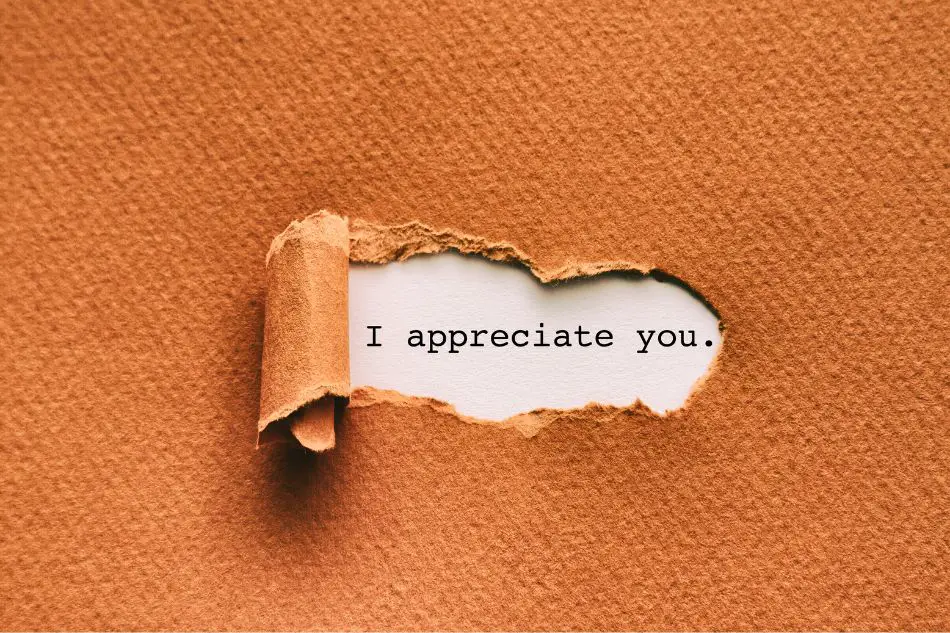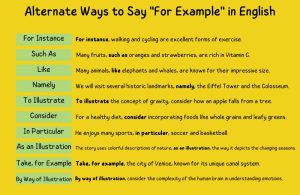There are so many ways you can express your gratitude in English. Some are used in formal situations, and some are in informal cases. However, there are so many situations when we need to express our gratitude.
In this post, I’ll share some example sentences that you can use in various situations. You can use them in real-life situations, depending on your needs. So, let’s move on.
“Thank,” “Appreciate,” and “Grateful” are the three common words that can express gratitude in English. So making sentences with any of these three words will certainly help you to express gratitude.
Are you looking for a book or a guide to help you learn and improve your English? You may try English Made Easy Volume One: A New ESL Approach: Learning English Through Pictures (Amazon Link).
Table of Contents
- Thank you…
- I appreciate…
- I am grateful…
- Other Examples of Expressing Gratitude in English
- Sample Conversation: Expressing Gratitude in English
- In Conclusion
- 10 Frequently Asked Questions Related to Expressing Gratitude in English
Now, let’s see some example sentences that can express gratitude well. I’ve tried to give examples of different situations. You can consider your own situation and form sentences to express gratitude.
Thank you…
Thanking someone is the most common way to express gratitude. So here I’m sharing some example sentences consisting of the word “thank.” Based on your needs, you can use them in different situations.

Even using the format of the following sentences, you can form new sentences depending on your necessity. While using the sentences, consider the situation. If the situation is formal, try to pick the formal expressions.
For example, you can say “Thanks” in an informal situation, whereas in formal situations, you should say “Thank you.” Here are the sentences.
- Thanks.
- Thanks a lot/a ton/a million/a bunch.
- Thank you.
- Thanks so much!
- Thanks very much.
- Thank you so much.
- Thank you very much for your kindness/thoughtfulness.
- Thank you very much.
- Thank you for your help/support/assistance/time/favor/contribution/consideration.
- Thank you for being so helpful/supportive.
- Thanks for being there all the time/all the way.
- Thank you for suggesting me this car.
- Thank you for referring me to this company.
- Thanks for sending me those precious notes for my dissertation.
- Thank you for giving me the time.
- Thank you for attending the event on my behalf.
- Thank you for the dress/gift/new house.
- Thank you for everything.
- All I can say is thank you.
- Many thanks for the dress/gift/new house/opportunity.
- All I can say is thanks.
- I cannot thank you enough.
- I am much thankful for your help/support/assistance/time/favor/contribution/consideration.
- My sincere thanks for everything you have done for me.
- Accept my deepest thanks for what you did for me.
- You have my deepest thanks.
- I want to thank you from the core of my heart.
- I would like to thank you from the bottom of my heart for everything you did for me.
I appreciate…
The word “appreciate” is also quite commonly used to express gratitude in English. It is primarily used in formal situations. However, you can also use this in semi-formal situations. When you appreciate someone, you acknowledge and compliment them for what they have done.

Let’s see the example sentences formed with the word “appreciate” to express gratitude.
- I appreciate you.
- I appreciate you because you considered my offer.
- I appreciate your help/support/assistance/time/favor/contribution/consideration.
- I appreciate getting the opportunity to speak/work with you today.
- I very much appreciate what you did for me.
- I truly appreciate the way you motivated me for my ESL journey.
- I greatly appreciate your effort in directing me on the right path.
- I sincerely appreciate you for being so helpful/supportive.
- I am very appreciative of your support/assistance/time/favor/contribution/consideration.
- My sincere appreciation for your consideration.
- My most profound appreciation for what you have done for me.
I am grateful…
“Grateful” is synonymous with gratitude. When you say that you are grateful to someone, you express gratitude to that person. This is also very commonly used to thank or appreciate someone in English.

Now, let’s see some example sentences that show how we can express gratitude in English using the word “grateful.”
- I am grateful to you.
- I am grateful for your help/support/assistance/time/favor/contribution/consideration.
- I am very grateful to you for your consideration.
- I am grateful for everything that I got from you.
- I am more grateful to you than you’ll ever know.
- I’m eternally grateful.
- I am so very grateful for your support/assistance/time/favor/contribution/consideration.
Other Examples of Expressing Gratitude in English
Besides the above common expressions, there are other ways that native English speakers express gratitude. Here are they.

Learn, practice, and use them in real life to master English speaking skills.
- I can’t express my gratitude with words.
- I am blessed to have you as my friend.
- Words cannot express enough what you mean to me.
- I can’t forget what you have done for me.
- I’ll never forget your support/assistance/time/favor/contribution/consideration.
- It would be impossible for me to do it without you.
- I couldn’t have accomplished this without you.
- I was fortunate to be helped by you in my last project.
- I got no idea how I should express my gratitude. You just won my heart.
- Please accept my deepest gratitude.
- My sincere gratitude to you for everything you did for me.
- I’ll value your suggestion for the rest of my life. You really changed my thoughts.
- You’ve become my inspiration now. Thanks for being beside me all the time.
- I must say that it was very thoughtful of you.
- I wonder how someone can be such helpful. You deserve the utmost gratitude.
- You are the best supportive teacher I have ever met.
- I am proud to be your student.
- It’s a privilege to meet a person like you.
- You have been the best leader I worked with.
- You have my sincere and deepest gratitude.
Sample Conversation: Expressing Gratitude in English
Situation: At a surprise birthday party, Ava is overwhelmed by the effort her friends put into organizing it.
Ava: I can’t believe you all did this for me! Thank you so much, from the bottom of my heart. This means the world to me.
Liam: It was our pleasure, Ava. We wanted to make sure you felt special today.
Ava: I’m truly touched. I can’t thank you enough.
In Conclusion
While expressing gratitude in English, your right word choice matters a lot. You should use some easy but appropriate and appealing words so the other person can feel it. Besides that, I would like to mention a few things you must consider.
Your gratitude must be genuine. Don’t say any good words just for the sake of saying them. Instead, genuinely mention why you are grateful to them and what difference they have made in your life.
You should also consider the formality of the situation and act accordingly. Be sensible, creative, and sincere while expressing gratitude.
I have shared many examples of how you can successfully express gratitude in English. Learn them and practice.
Happy learning!
10 Frequently Asked Questions Related to Expressing Gratitude in English
1. Why is it important to express gratitude in English?
Expressing gratitude not only acknowledges someone’s effort or kindness but also fosters positive relationships and promotes a culture of appreciation.
2. What are some common ways to say “thank you”?
Besides “thank you,” you can say “thanks,” “I appreciate it,” “I’m grateful,” “Thank you so much,” or “Thanks a ton.”
3. How can tone and body language enhance expressions of gratitude?
A sincere tone, maintaining eye contact, and gestures like a smile or nod can make expressions of gratitude feel more genuine.
4. Are there more formal ways to express gratitude?
Yes, phrases like “I’m sincerely grateful,” “I truly appreciate your assistance,” or “Your support has been invaluable” are more formal expressions.
5. How can I express gratitude for small gestures?
Simple phrases like “Thanks,” “You’re kind,” or “That’s sweet of you” can be used for everyday gestures.
6. Are there cultural nuances in expressing gratitude?
Indeed. While the act of thanking is universal, the frequency, intensity, and manner of expressing gratitude can vary across cultures.
7. How can I teach children to express gratitude?
Modeling gratitude, encouraging them to say “thank you” in daily interactions, and discussing the importance of appreciation can instill this value in children.
8. Is it appropriate to express gratitude multiple times for the same act?
While it’s essential to show appreciation, overly repetitive gratitude for the same gesture might come off as insincere. It’s about striking a balance.
9. How can I express gratitude in written form?
Thank you notes, appreciation letters, or even a simple text or email can be used to convey gratitude in writing.
10. How can actions complement verbal expressions of gratitude?
Acts like returning a favor, offering help in the future, or even a simple gesture like giving a small gift can complement and reinforce verbal thanks.





